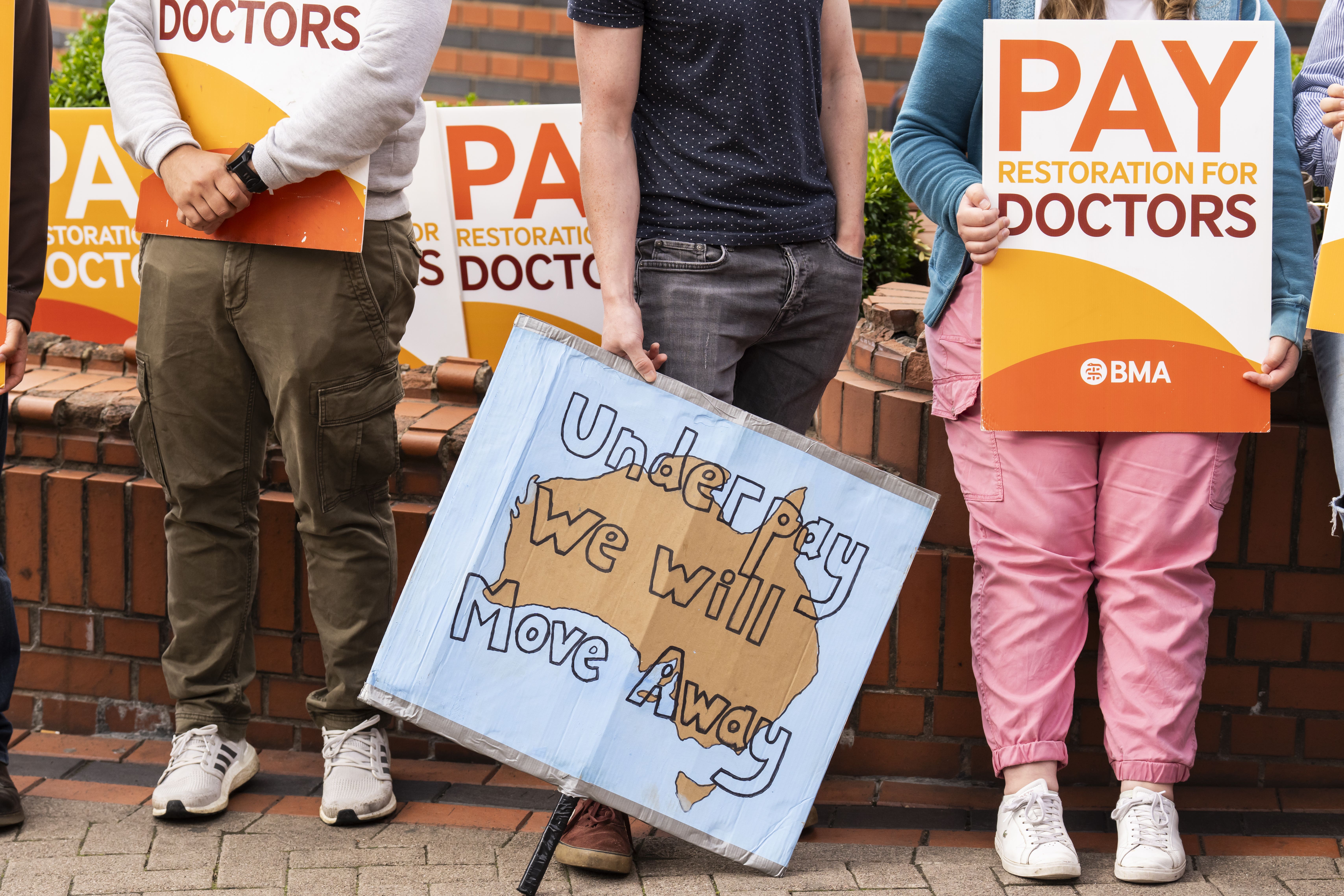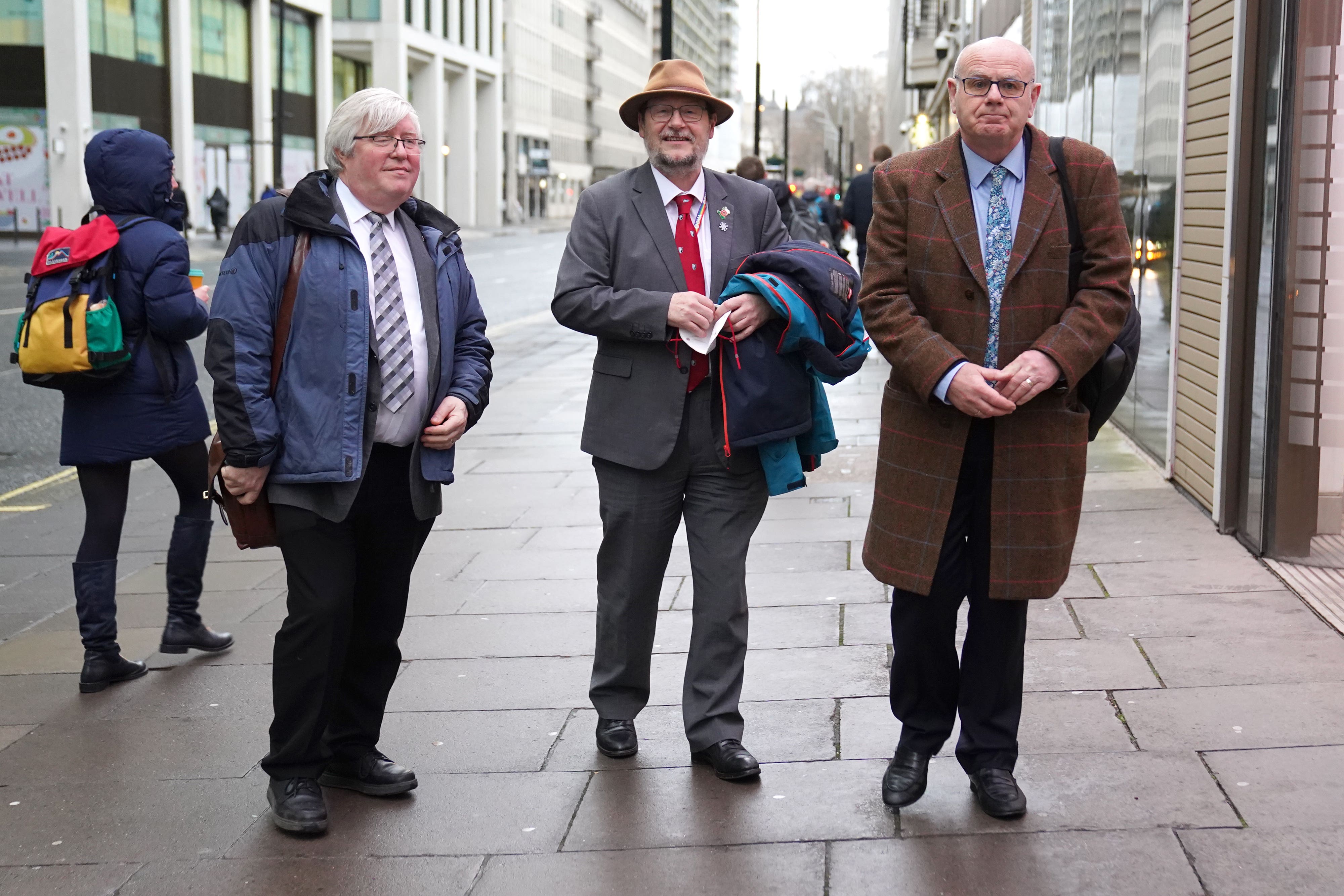Rishi Sunak’s pledge to cut NHS waiting lists ‘blown out of water’ as backlog set to soar
Latest figures show 500,000 more people are waiting to be seen since he made the key promise
Rishi Sunak will miss his key pledge to cut NHS waiting lists as a new analysis shows the backlog is set to hit a record 8 million by next summer – regardless of further strikes.
The number of patients waiting for an operation or appointment will peak at an all-time high by August 2024 – up from 7.75 million this August, according to the Health Foundation think tank.
The analysis will come as a blow to the prime minister who has so far failed to meet promises he made in January 2023 to cut the backlog and get people treated more quickly by March 2024.
The latest figures show 500,000 more people are waiting to be seen since he made the pledge.
Wes Streeting, Labour’s Shadow Health Secretary, said the report “blows out of the water the Conservatives’ attempts to blame doctors and nurses for the crisis in the NHS”.
“Rishi Sunak’s failure to stop the strikes has only made a terrible situation worse, leaving even more patients waiting in pain and discomfort, unable to live their lives to the full,” he added.
The Health Foundation’s predictions, calculated by measuring new monthly surgery and appointment referrals against completed treatments, found the NHS waiting list has been steadily rising for the past decade. And efforts to tackle the backlog could be further hampered by a new wave of Covid or bad winter flu season or hospitals having to cut back care as a result of financial pressures, it added.
Charles Tallack, director of data analytics at the Health Foundation, said: “Ministers have been quick to blame industrial action for the lack of progress in reducing the waiting list but the roots of this crisis lie in a decade of underinvestment in the NHS, a failure to address chronic staff shortages and the longstanding neglect of social care. The pandemic heaped further significant pressure on an already stressed system but waiting lists were already growing long before Covid.”

“Eliminating the backlog for elective care and returning waiting times to 18 weeks is entirely possible – it was done in the early 2000s and it can be done again. However, it will be very challenging and will require sustained focus, policy action and investment.”
The report warned that ongoing junior doctors’ strikes could cause the waiting list to increase after August 2024 by 180,000. It also said they would have indirect impacts on services such as “squeezing NHS finances and diverting management attention away from productivity improvement”.
So far, strike action by junior doctors, which started in March, and action by consultants which started in July, has increased the waiting list by 210,000 people – 3 per cent – according to the analysis.
Responding to the report, Tim Mitchell, president of the Royal College of Surgeons of England, said waiting lists had “ballooned” in the past decade due to “underinvestment and workforce shortages” – pressures which were compounded by the pandemic.
“While industrial action has contributed to delays, the roots of this crisis precede the strikes,” he said.
Matthew Taylor, chief executive of the NHS Confederation, which represents health services across England said: “With the elective waiting list increasing by around 100,000 a month, NHS finances already hit to the tune of £1.4bn and nearly 1.2 million people experiencing a cancelled operation as a result of industrial action, it’s in everyone’s interest to bring the strikes to an end. If not, we are facing a waiting list of over 8 million next year.”

“As the Health Foundation report rightly says, the root cause of the delays to treatment that patients are now experiencing is a decade of under-investment in the NHS.”
Representatives from the British Medical Association and the government met last week after months of stalemate over the strikes.
BMA chair, Prof Phil Banfield, said: “For months we have been hearing ministers blame strikes for the length of the elective waiting lists, which are now nearing 8 million. While there is no doubt that industrial action has had an effect on the ability to reduce waiting lists – something that could have been avoided entirely if the government had come to the table willing to listen to doctors in the first place – it pales in comparison with a decade of failure of policy on the NHS from the top
“This should be a ‘carpe diem’ moment for the PM and chancellor. They must seize the moment to demonstrate they are planning and investing for the long-term future of the UK. I appeal directly to them to unblock the obstacles that stop us getting on with treating patients. It is up to them.”
The Department of Health and Social Care has been approached for comment.
Join our commenting forum
Join thought-provoking conversations, follow other Independent readers and see their replies
Comments
Bookmark popover
Removed from bookmarks